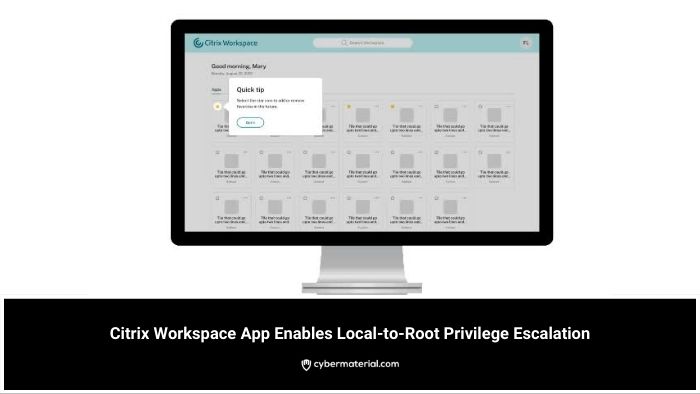May 29 2024 – Cyber Briefing

👉 What’s trending in cybersecurity today?
Android, Google Play, Zscaler ThreatLabz, Microsoft Office, Cofense, Citrix Workspace App, Space Racoon, Fortinet, Horizon3’s Attack Team, Seattle Public Library, Ransomware, Boge On Base, Russia, CDEK, Center Line Schools, WXYZ, Dammartin-en-Goële City, Cyber Jobs, US Congress, Virus, Generative AI, The Japan News, Chinese-Thai, Cybercrime Ring, 911 S5 Botnet, U.S. Department of the Treasury, OpenAI, Safety Committee, Netflix, Bug Bounty Program.
Listen to the full podcast
Over 90 malicious Android apps were discovered on Google Play, accumulating over 5.5 million installations. Among these, the Anatsa banking trojan, also known as “Teabot,” has seen a recent surge in activity. This trojan targets over 650 financial applications in Europe, the US, the UK, and Asia, aiming to steal e-banking credentials for fraudulent transactions.
Microsoft Office tools allow users to create professional reports, essays, and CVs, and perform data analysis. These tools support macros and Python scripting in Excel for automated data updates but can also be exploited for phishing and malware attacks. Cybersecurity researchers at COFENSE discovered hackers actively weaponizing Office documents to deploy malware in business environments. Users must stay vigilant and implement strong security measures to mitigate these risks.
A critical vulnerability (CVE-2024-5027) in Citrix Workspace for Mac poses severe risks, allowing attackers root access. It affects versions before 2402.10, urging users to update immediately to prevent exploitation and potential system compromise. Stay informed and safeguard your digital assets against evolving cyber threats.
A new vulnerability in Zscaler Client Connector has been patched, combining three different vulnerabilities into a significant threat. These flaws allowed attackers to escalate from standard user privileges to high-privileged NT AUTHORITY\SYSTEM on Windows systems. Fortunately, Zscaler has addressed these vulnerabilities in their latest versions.
A proof-of-concept exploit for Fortinet’s FortiSIEM exposes a severe command injection vulnerability (CVE-2024-23108), allowing remote command execution as root without authentication. Security researchers from Horizon3 have released the exploit, highlighting risks to unpatched FortiSIEM appliances. Such vulnerabilities are exploited in ransomware and cyber espionage attacks, emphasizing the criticality of timely updates for network security.
Seattle Public Library (SPL) faces disruption from a recent ransomware attack just before scheduled maintenance. Various services, including computer access and online resources, are inaccessible to patrons. While physical materials remain available, restoration efforts are ongoing to fully recover services and ensure patron privacy.
Based Doge faces exploit, mimicking the recent Normie attack, resulting in the draining of 91.4M BOGE tokens. The team plans compensation for victims and a project relaunch. Exploits highlight ongoing risks in the cryptocurrency space, urging heightened security measures.
A little-known hacker group known as Head Mare claims responsibility for a ransomware attack that has crippled CDEK, one of Russia’s largest delivery companies, for three days. The attack encrypted servers and destroyed backup copies of corporate systems, prompting the suspension of parcel shipments to prevent errors during manual processing. Despite progress in restoration efforts, the company faces challenges in resuming full operations, leaving customers concerned about delayed deliveries and highlighting vulnerabilities in cybersecurity infrastructure.
A ransomware attack on Center Line schools in Michigan forced 2,500 students to stay home, prompting the district to seek FBI assistance. Concerns over data security have left parents uneasy, as the superintendent assures efforts to secure information. Despite disruptions, classes are set to resume Wednesday pending ongoing investigations.
Dammartin-en-Goële, France, faces a significant cyberattack, disrupting vital services following a breach by Russian-speaking hackers. Despite security efforts, malicious software infects numerous files, prompting operations to degrade indefinitely. Investigations by the IT department and gendarmerie cyber unit are underway as the city endeavors to restore functionality.

Democratic legislators introduce a bill promoting cybersecurity jobs for disadvantaged communities, including those recently released from prison. The Diverse Cybersecurity Workforce Act aims to expand education and outreach efforts to underrepresented groups, supported by 32 cosponsors. While addressing the workforce shortage, concerns arise over potential risks associated with granting access to sensitive information to individuals with criminal histories.
A 25-year-old man from Kawasaki, Japan, was arrested for creating a computer virus using interactive generative AI. This marks the nation’s first case involving the use of AI systems to develop malware. The suspect combined information from various AI platforms to craft a virus capable of encrypting data and demanding cryptocurrency ransom, although no damage has been reported yet.
The US Treasury Department targets a cybercrime ring tied to the “911 S5” botnet, which abused compromised devices for fraudulent activities and bomb threats. Researchers exposed its illegal proxy service in June 2022, leading to its temporary shutdown. The crackdown highlights ongoing efforts to combat cybercrime and protect citizens from malicious threats.
OpenAI announces a safety and security committee to advise on critical decisions, following controversy over AI safety. Despite recent debates, the company is training its next-gen model. The committee will evaluate processes and make recommendations within 90 days.
Netflix has disbursed over $1 million in rewards since launching its bug bounty program in 2016, with more than 5,600 researchers contributing nearly 8,000 vulnerability reports. The move to the HackerOne platform promises better management, higher rewards, and expanded coverage, including critical issues impacting Netflix.com and corporate assets, with payouts ranging from $300 to $20,000.
Copyright © 2024 CyberMaterial. All Rights Reserved.
Get Help
July 31, 2025 – Cyber Briefing
July 30, 2025 – Cyber Briefing
July 29, 2025 – Cyber Briefing
July 28, 2025 – Cyber Briefing
July 25, 2025 – Cyber Briefing










